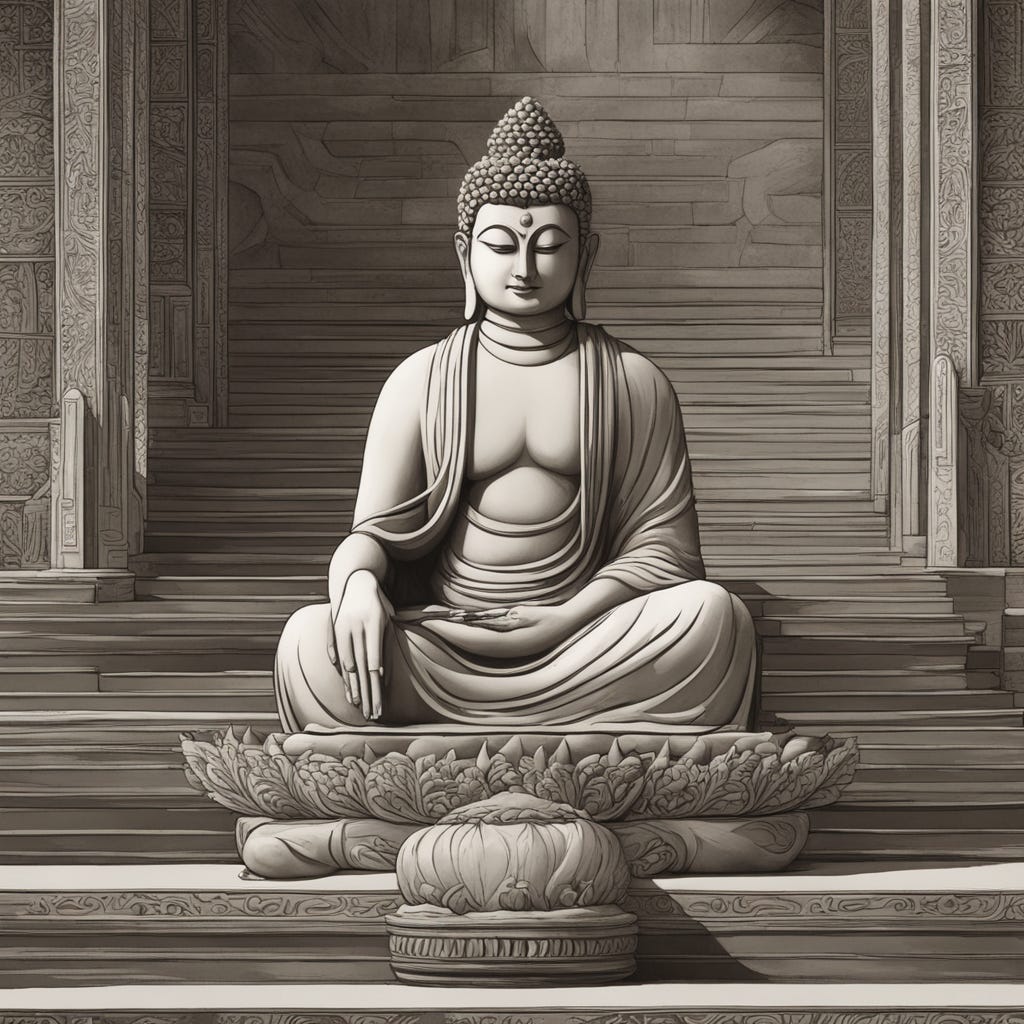[Bonus] Practical Tools for Reflection from Siddhartha Part One
Four questions for making life decisions, a unique method to read, and a poem for letting go.
Before we continue with the second part of Siddhartha, I wanted to share some practical tools I extracted from the first part—alongside additional food for thought.
Most notably: four questions for reflecting on change and making better life decisions. Also, I’ll share a method I call philoetry—which I often use to extract more from the texts I read. Finally, I brought a poem (also by Hermann Hesse) that has long served me as a beacon for change and letting go.
Four questions for making better life decisions
Siddhartha is a master of changing his life over and over again. He rids his old attachments, routines, and homes like a snake sheds skin. In the light of this, I kept thinking. What are the reflective insights Siddhartha implicitly made to arrive at his decisions? And so, I sort of reversed-engineered his answers into questions.
So far, I dug up four questions that have sustainably made me more content and confident with facing change.
Most of these can be applied to any difficult (or not-so-difficult) life decision. Some of them can also be used as a shotgun approach if you know you need to make a change but don’t know where to start.
Imagine you’re looking back on the decision in question five years from now. Then, ask yourself: Am I satisfied with the decision I made? I imagine this question to be Siddhartha’s ultimate tool for deciding whether to stay or leave his current circumstances. When he was still a Brahmin, he realized he wouldn’t find peace in the long run. When he became a Samana, he realized even the oldest and wisest would never reach enlightenment. With the Buddha, Siddhartha realized he had to experience the teachings himself rather than listen to them. All these insights have in common that Siddhartha considered himself in the long run—using that information to make the most of his current situation.
Keep reading with a 7-day free trial
Subscribe to The Bibliosopher's Club to keep reading this post and get 7 days of free access to the full post archives.


